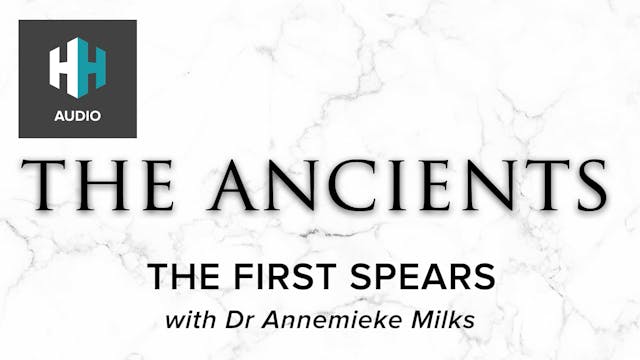When you envision what Earth was like 4.5 billion years ago, shortly after its creation, images of dust-filled air and raging volcanoes tend to come to mind. However, amidst all that chaos, hidden within the rocks and atmosphere, what if water was also present? Traveling back to the beginning of the Solar System and Earth's formation, it turns out that Earth was partially wet from the start. with water molecules clinging to the asteroids that would later form our planet. So, how do we go about proving the existence of primordial water? And why is it so important to scientists today?
In today's episode, Tristan welcomes Dr. Lydia Hallis from the University of Glasgow to delve into the history of water's origins and explain why this research is game-changing. Drawing from research in NASA's Astrobiology archives and Dr. Hallis's own exploration in the Arctic Circle, where she scaled kilometer-high ice mountains with the help of a Red Bull athlete, we explore why the existence of primordial water on Earth is so significant and what implications it holds for the rest of the solar system.
Up Next in 🎧 The Ancients
-
🎧 The Picts
Originating around the 3rd Century BCE and later designated official adversaries of the Roman Empire, the Picts wreaked havoc across the northern fringes of Roman Britain. But due to their limited presence in the archaeological record and the complexities of multiple kings, kingdoms, and language...
-
🎧 The First Spears
According to the work of today's guest, Dr Annemieke Milks, humans were using spears approximately 400,000 years ago. Thanks to fragments of wooden spears incredibly well preserved at sites like Clacton-on-Sea in Essex, and Schöningen in Germany, there's now evidence to show our early ancestors w...
-
🎧 Australopithecus: Who Was Lucy?
For millions of years, Australopithecus thrived in Africa's vast landscapes, laying the groundwork for the emergence of the Homo genus. Later, alongside early members of the Homo genus, Australopithecus played a crucial role in shaping human evolution and our present-day existence.
In this epi...




4 Comments